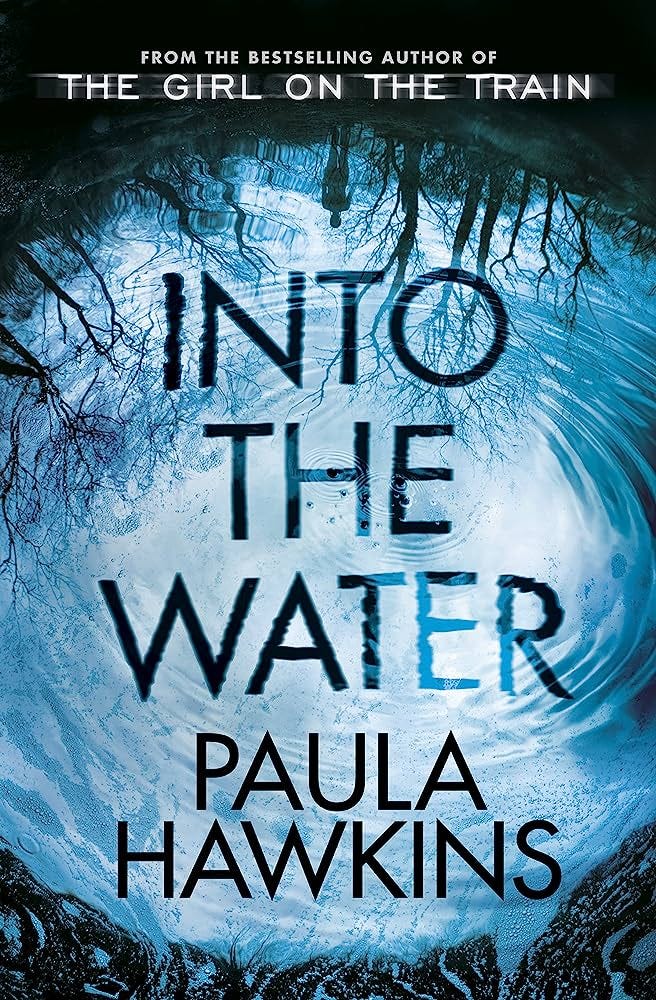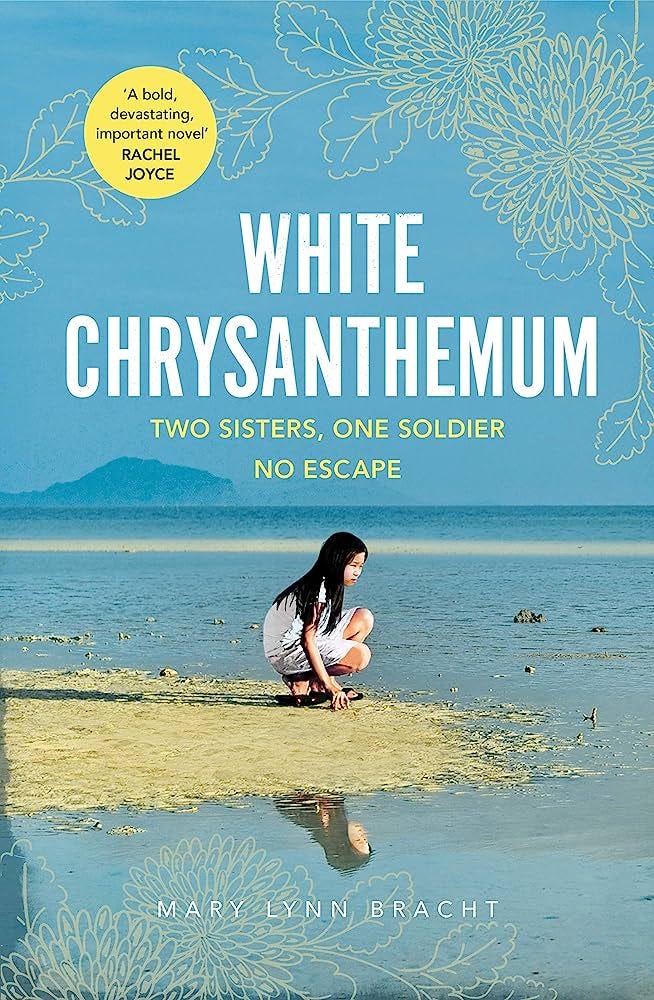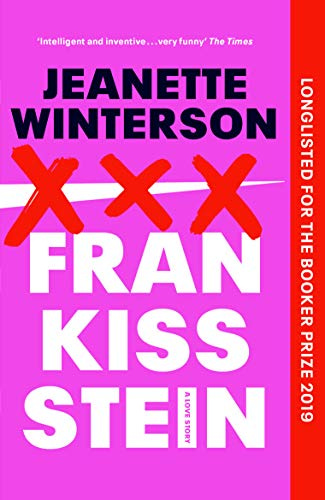What I Read #2: Into the Water, White Chrysanthemums and Frankenstein Fan Fiction
My reading update from the beginning of the month and my reading update from now could very well be a ‘How It Started and How It’s Going’ meme because, thankfully, I now have more free time to read books. Having said this, the books I have been reading have all been hits and misses, including my latest read: Into the Water by Paula Hawkins. Hawkins is the author of the celebrated thriller The Girl On The Train, which was adapted into a film of the same name starring Emily Blunt in 2016. The first book didn’t sit well with me, and neither did this one.
The story picks up after a single mother is found dead in the river that runs through the town of Beckford. The friend of her teenage daughter was found in the same river not more than a month before this incident, and they are not the first women to die in such an unfortunate way. Into The Water follows several characters as the death results in an investigation that unearths many secrets in the town. The premise itself did not feel very new but going into it, I thought that it was possible for her to do something new with the trope of the atmospheric small town. However, my expectations were not met.
The book is written from many perspectives. Thrillers written in this format often have the ability to explore the idea of how there can be different versions of the truth while talking about the same event. A trope that can be used very effectively, particularly in murder mysteries. But for a book with multiple perspectives to be effective, it has to give enough time for the different characters to be fleshed out. Hawkins introduces such a large cast of characters: the teenage daughter, the estranged sister, the mysterious policeman, the town ‘crazy’ woman, the newcomer, the patriarch, the grieving mother, the school teacher, and the betrayed wife; that it is difficult to keep up with them. I spent the first 75 pages just trying to distinguish between the shifting perspectives.
Beware a calm surface—you never know what lies beneath.
Paula Hawkins, Into The Water (2017)
Hawkins tries to give us a thriller with strong feminist undertones by exploring themes of sexual assault, domestic abuse, the hyper-sexualisation of young girls and paedophilia. She attempts to create an atmospheric tale almost reminiscent of stories of witch-hunting. But the execution falls short, and as a result, the mystery could not keep me gripped, nor did it provide enough food for thought. The book was underwhelming for the most part and problematic in its portrayal of paedophilia (sometimes the perpetrator getting what he deserves isn’t enough, and the author needs to make a strong statement, which was missing).
Since this book missed the mark, I thought I would suggest a few alternatives with the same feel. The Essex Serpent by Sarah Perry and The Water Cure by Sophie Mackintosh are two literary fiction novels that explore the same idea of an atmospheric water body while giving us feminist stories. What Into The Water, with its Drowning Pool, cannot accomplish in terms of creepiness, these two books deliver. For those looking for good thrillers with feminist representations, you don’t have to look further than Sharon Bolton. My love for this author’s work knows no bounds; you can decide for yourself what that says about me because she writes dark stories about serial killers. At 16, I wanted to send Bolton fan mail along with a friend, and I wouldn’t hesitate to do it now, either. Bolton’s novels, especially her Lacey Flint series starting with Now You See Me, are mysteries with just the right amount of twists. The last plot twist in Into The Water came at a time when I had lost almost all interest in the novel. It failed to surprise me or even make me pay attention. Whereas, what is commendable about Bolton as an author is that she manages to keep the reader gripped so that the twists really hit home.
No one liked to think about the fact that the water in that river was infected with the blood and bile of persecuted women, unhappy women; they drank it every day.
Paula Hawkins, Into The Water (2017)
After the disappointment that was Into The Water, I decided to pick up a book that I was sure to love. There is something about the world politics, relationships and events of World War II that makes me want to read and watch all the stories set in that time. If I have one aim for this blog, it is to read/watch enough World War II fiction to write a comparative essay on the works one day. In the quest to accomplish this, I picked up Mary Lynn Bracht’s White Chrysanthemum. While reading about World War II, we often come across stories of the Holocaust, stories of air raids across the European continent and even stories from an American perspective. However, a topic that is very rarely explored is the impact of the war on countries like Korea under Japanese occupation. Earlier this year, I read How We Disappeared by Jing-Jing Lee, which introduced me to a harrowing tale of the so-called comfort women, girls and young women abducted from Korea and forced into prostitution at the Japanese war front. My knowledge about this part of history was seriously lacking because history, in a strictly academic sense, often leaves out stories of women whose bodies are literally used as a means to fight in wars.
White Chrysanthemum is a story of two sisters from the Jeju Islands of Korea and is told in two timelines; one, set in 1943, follows the elder sister, Hanna, as she is abducted by a Japanese soldier and taken to Manchuria, where she is forced to become one of the comfort women, and the second, set in 2011 that follows Emi, the younger sister, now an old lady determined to find her sister. It is a dark tale, and Bracht does not pull punches. The descriptions of the horrific lives of the abducted girls and the conditions in which Koreans lived in the period between the withdrawal of Japanese troops from Korea and the Korean War both vividly create a picture that will definitely stay with me for a long time. Halfway through the book, and I am- enjoying won’t be the right word for this book- truly enthralled by the tale. Bracht takes you through a journey in the short novel that spans several locations, including Manchuria, Mongolia and the more urban areas of Seoul. I am especially intrigued by the stories of the Korean sea divers and their rituals, topics I had no previous knowledge of. The writing, however, is very sparse when compared to Lee’s novel, which is definitely one of my favourites from this year.
On Hana’s island, diving is women’s work. Their bodies suit the cold depths of the ocean better than men’s. They can hold their breath longer, swim deeper, and keep their body temperature warmer, so for centuries, Jeju women have enjoyed a rare independence.
Mary Lynn Bracht, White Chrysanthemum (2018)
With Halloween coming up, I know I live in India, and that is not something we celebrate here, but social media is so America-centric and saturated with American pop culture references that Halloween has become a part of my Octobers, too- it seems like the perfect time to pick up a creepy, horror novel. The catch is that I do not do horror very well. (I get the Heebie Jeebies.) So since I have not been able to bring myself to read Mary Shelley’s Frankenstein yet, I decided to pick up Jeanette Winterson’s Frankissstein: A Love Story instead. This book, and the author, come highly recommended by a fellow reader friend from college. While reading this book, she was asked by an acquaintance if the book was Frankenstein smut fanfiction. Thankfully, her answer was no. (My brain immediately went to a “My mother sold me to One Direction to pay her debts…” vibe.”) If this comparison was not enough to intrigue me, a quick look at the synopsis managed to do that. The book follows multiple characters, including a transgender doctor, Mary Shelly herself, a divorced man who makes sex dolls and the people in a cryogenics facility, and the manner in which their storylines overlap. Even though it doesn’t sound like Frankenstein fanfiction, it definitely is quite a bizarre premise. I am planning on picking up this book on the 31st, and it sounds just the right amount of crazy! See you on the other side. And till then, happy reading!



